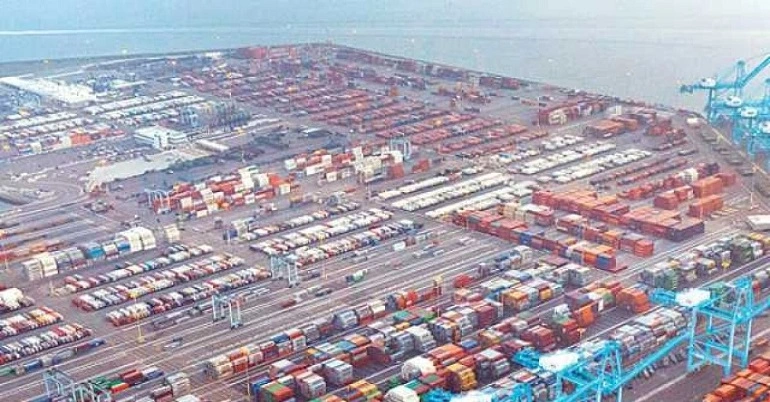Mumbai Port Authority (MbPA), have invited applications for recruitment of various Class I (9 posts) and Class III (5 posts) by direct recruitment.
Current Openings : 14
Class-I
Safety Officer : 3
Welfare Officer : 1
Senior Welfare Officer:3
Dy. Manager (Welfare): 1
Hindi Officer : 1
Class-III
Hindi Translator Gr.-II : 5
Prospective candidates are required to apply online after carefully reading the detailed advertisement regarding the process of examination, eligibility criteria, online registration processes, payment of prescribed application fee/ intimation charges, pattern of examination, issuance of call letters etc. and to ensure that they fulfil the stipulated criteria and follow the prescribed processes.
Candidates have to submit application by online mode through link provided on MbPA’s website www.mumbaiport.gov.in under Media/Vacancy Menu only.
Further, Candidates have been advised to regularly keep in touch with authorized Mumbai Port Authority website www.mumbaiport.gov.in for further details and updates.
All details are available on MbPA website www.mumbaiport.gov.in
About Mumbai Port
Mumbai Port has long been the principal gateway to India and has played a pivotal role in the development of the national economy, trade & commerce and prosperity of Mumbai city in particular. The port has achieved this position through continuous endeavor to serve the changing needs of maritime trade. Though traditionally designed to handle general cargo, over the years, the port has adapted to changing shipping trends and cargo packaging from break bulk to unitisation / palletisation and containerisation. Besides, it has also developed specialised berths for handling POL and chemicals. For decades, Mumbai Port was India’s premier port. Even today, with the development of other ports, it caters to 8.61 percent of the country’s sea-borne trade handled by Major Ports of the country in terms of volume. It caters to 16.07 percent of POL Traffic handled by Major Ports.
Having weathered and survived many a changes in maritime trade in its long history, Mumbai Port is today facing challenges posed by competition from adjoining ports and private ports, changing traffic patterns, inherent physical constraints and continuing labour intensive operations, etc. However, Mumbai Port is taking various measures to render cost effective and quality services to the trade.
After the transfer of the Port and Island to the East India Company by Royal Charter in 1668, development of the Port started taking shape. Various measures such as construction of a Custom house, a warehouse, dry docks etc. were taken up by the Company to encourage trade. In 1813, an act of the British Parliament ended the Company’s commercial monopoly. This resulted in a great spurt in the trade of the Port. The year 1858 witnessed the exit of East India Company, and passing of Mumbai under the direct rule of the British Crown. In 1873, the present statutory autonomous Port Trust was set up for administering the affairs of the Mumbai Port. The opening of the Suez Canal in 1869 revolutionised the maritime trade of Mumbai. It shifted the whole scenario of import and export trade from the East coast to the West and Mumbai port became the principal Gateway of India. The first wet dock constructed in India was the Sassoon Dock at Mumbai in 1875 followed by the Prince’s and Victoria Docks in 1880 and 1888 respectively. However, Princess and Victoria Dock are being filled up to convert the consultant area to make temporary stacking yard for containers in connection with “Offshore Container Terminal” in Indira Dock. The Alexandra Dock renamed Indira Dock in January 1972, the most modern of Mumbai’s docks, was constructed in 1904-1914. To handle petroleum products and liquid chemicals, a jetty was constructed at Pir Pau in 1923 and a new modern jetty capable of handling tankers of 47,000 Displacement tons was commissioned in December 1996. A modern oil terminal at Jawahar Dweep with three berths was constructed between 1952-1956, and the fourth oil berth capable of receiving tankers upto 1,25,000 Displacement tons was constructed between 1980-1984.
Detailed Advertisement Link: https://mumbaiport.gov.in/writereaddata/linkimages/0553846827.pdf
